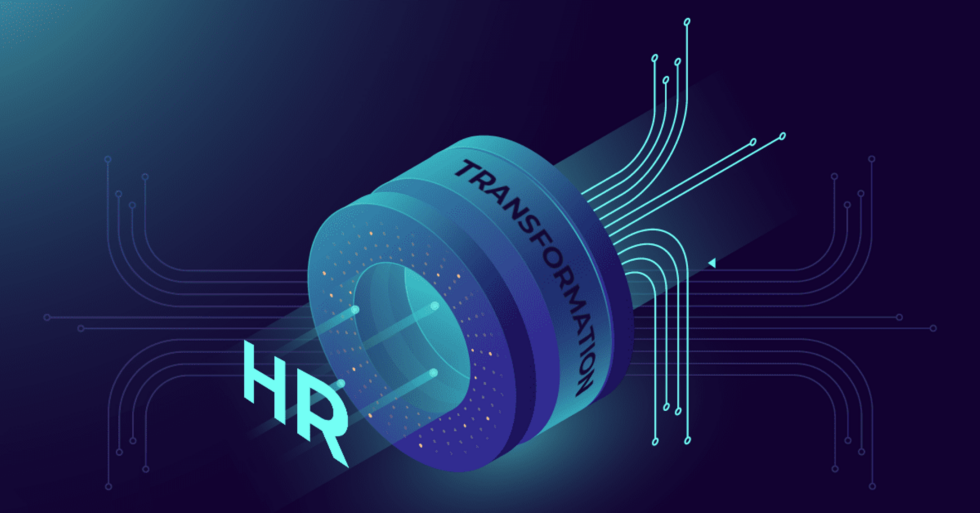Digital Transformation
The field of Digital Transformation in Human Resources (HR) has undergone a revolutionary shift in recent years, largely propelled by the rapid advancements in technology. The concept of digital transformation has transcended being merely a buzzword; it now signifies a fundamental change in how HR professionals operate and interact with employees. This blog post delves into the intricacies of digital transformation in HR, its far-reaching benefits, and the profound impact it is having on the way organizations manage their most valuable asset: their people.
Understanding Digital Transformation in HR
Digital transformation within the realm of HR involves harnessing technology to refine and elevate HR processes, rendering them more streamlined, data-centric, and employee-focused. This transformation encompasses various facets of HR, ranging from recruitment and onboarding to performance management, employee engagement, and continuous learning and development initiatives.
Benefits of Digital Transformation in HR
Efficiency and Automation: By embracing digital tools, HR professionals can automate tasks that were once laborious and time-consuming. Processes such as payroll management and benefits administration are now automated, freeing up HR personnel to dedicate their time to more strategic endeavors.
Data-Driven Decision Making: The integration of digital tools empowers HR teams to gather and analyze comprehensive data pertaining to employee performance, engagement levels, and job satisfaction. This data-driven approach facilitates informed decision-making, leading to improved HR strategies and employee experiences.
Enhanced Employee Experience: In a technologically driven landscape, employees expect a seamless and user-friendly experience when interacting with HR. Through digital transformation, organizations can offer self-service portals, mobile applications, and AI-powered chatbots that simplify access to HR services and information.
Recruitment and Talent Acquisition: The infusion of artificial intelligence (AI) and data analytics is redefining how companies identify and secure talent. AI-driven tools can identify suitable candidates more rapidly and accurately, subsequently reducing the time required to fill vacant positions.
Remote Work and Collaboration: Digital HR tools are pivotal in facilitating remote work scenarios by providing virtual onboarding processes, performance management solutions, and collaboration platforms. This enables a seamless communication flow among remote and geographically dispersed teams.
Key Components of Digital Transformation in HR
Cloud-Based HR Management Systems: The adoption of cloud-based HR software offers a centralized platform for data storage and access. This accessibility from anywhere ensures that HR data remains secure and consistently accessible.
AI and Machine Learning: AI and machine learning technologies play a pivotal role in HR by facilitating predictive analytics, analyzing employee sentiments, and automating routine HR tasks, thereby augmenting the efficiency of HR operations.
Employee Self-Service Portals: These portals empower employees to independently update their personal information, request time off, access pay stubs, and enroll in benefit programs. This self-service capability streamlines administrative tasks and enhances employee autonomy.
Digital Learning Platforms: Digital learning platforms have transformed the landscape of employee training and development. These platforms offer online courses and resources, enabling employees to upskill and remain competitive in their roles.
Challenges and Considerations
While the integration of digital transformation in HR holds immense promise, it is not devoid of challenges. These challenges may encompass data security concerns, the need for employee training on new platforms, and the potential for resistance to change within the organizational structure.
Data Security: The digitization of HR processes brings with it the responsibility of safeguarding sensitive employee data. Cybersecurity measures, such as encryption and access controls, are paramount to protect this invaluable information from breaches and unauthorized access.
Employee Training and Adoption: The successful implementation of digital HR tools requires thorough employee training and education. HR professionals must ensure that employees are comfortable using new platforms and understand their benefits.
Change Management: Resistance to change is a common challenge when introducing digital transformation. HR leaders must employ effective change management strategies to gain buy-in from employees and other stakeholders.
Compliance and Legal Considerations: The use of digital tools in HR must adhere to local and international labor laws and regulations. Ensuring compliance with data protection laws, such as GDPR or HIPAA, is critical.
Integration with Legacy Systems: Many organizations already have existing HR systems. Integrating new digital tools with legacy systems can be complex and requires careful planning.
Conclusion
Digital transformation in HR transcends being a mere trend; it now stands as a strategic imperative for organizations aspiring to thrive within the dynamic and competitive business landscape of the modern era. By embracing technology and adopting a data-driven approach, HR professionals can more effectively serve their employees, catalyze organizational growth, and significantly contribute to the overall success of their respective companies.
In this rapidly evolving digital age, the HR function holds the potential to lead the way in shaping the future of work through the lens of digital transformation. It’s time for HR to take the helm in steering organizations towards a more efficient and people-centric tomorrow. As we continue to navigate the ever-changing landscape of work, one thing is abundantly clear: digital transformation in HR is not just a destination but an ongoing journey towards innovation, efficiency, and enhanced employee experiences. In this journey, the future looks bright, promising a workplace where technology complements human expertise, ultimately benefiting both employees and organizations alike.

